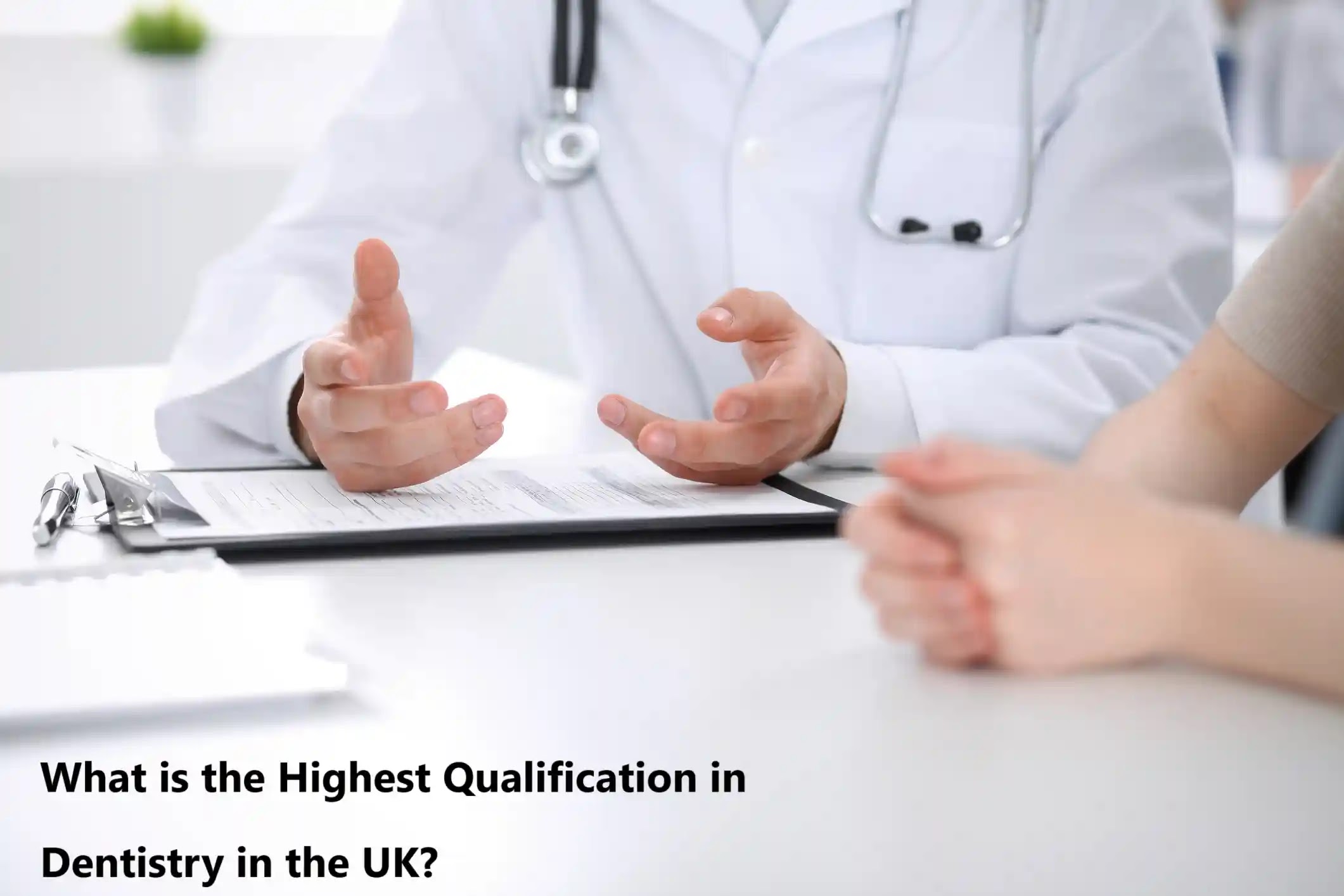Dentistry, a noble profession focused on oral health, offers
a diverse range of qualifications for aspiring professionals. From foundational
degrees to specialized postgraduate studies, the journey in dentistry is
extensive. This article delves into the highest qualification in dentistry in
the UK, providing insights into the various paths available for ambitious
dental practitioners.
Introduction
In the realm of dentistry, the pursuit of higher qualifications
signifies a commitment to excellence and continuous learning. Understanding the
highest qualification in dentistry is crucial for those aspiring to reach the
pinnacle of their careers. Let's explore the landscape of dental qualifications
in the UK and shine a light on the apex of academic achievement in this field.
Overview of Dentistry Qualifications in the UK
Basic Dental Degrees
The journey in dentistry typically begins with a Bachelor of
Dental Surgery (BDS) degree. This foundational qualification equips individuals
with the fundamental knowledge and skills necessary for dental practice.
However, the quest for excellence doesn't end here.
Specialized Postgraduate Qualifications
As dental professionals progress in their careers, they
often seek specialized postgraduate qualifications to enhance their expertise.
These include Membership of the Faculty of Dental Surgery (MFDS), Master of
Clinical Dentistry (MClinDent), Doctor of Clinical Dentistry (DClinDent), and
the prestigious PhD in Dentistry.
Bachelor of Dental Surgery (BDS)
The BDS degree serves as the entry point into the world of
dentistry. It encompasses a comprehensive curriculum, covering areas such as
anatomy, pathology, and clinical practice. While essential, BDS is just the
starting point for those aiming for the highest echelons of dental
qualifications.
Membership of the Faculty of Dental Surgery (MFDS)
For those seeking career progression and specialization,
MFDS is a crucial milestone. This qualification, offered by the Royal College
of Surgeons, emphasizes advanced clinical skills and theoretical knowledge.
Successful completion opens doors to higher qualifications.
Master of Clinical Dentistry (MClinDent)
MClinDent represents a leap into advanced clinical training
and research. This qualification allows dentists to specialize in a particular
area of dentistry, honing their skills under the guidance of experts. The
inclusion of a research component adds depth to their expertise.
Doctor of Clinical Dentistry (DClinDent)
At the pinnacle of clinical qualifications is the DClinDent,
combining advanced clinical training with a significant research component.
This qualification is ideal for those aspiring to make substantial
contributions to the field through research and academia.
PhD in Dentistry
For the research-oriented, a PhD in Dentistry offers the
highest academic achievement. Undertaking original research and contributing to
the body of knowledge in dentistry, individuals with a PhD are recognized as
experts in their chosen areas.
Comparing Qualifications
Differentiating between these qualifications is crucial for
aspiring dentists. While BDS is foundational, each subsequent qualification
represents a deeper commitment to the profession and a more specialized skill
set.
Challenges and Rewards
The journey to the highest qualification in dentistry is not
without challenges. The rigorous nature of advanced studies demands dedication,
but the rewards in terms of career opportunities and personal growth are
significant.
Expert Insights
To provide a real-world perspective, we interviewed dental
professionals holding the highest qualifications. Their insights shed light on
the importance of advanced degrees in shaping successful careers in dentistry.
Breaking Misconceptions
Aspiring dentists often face misconceptions about pursuing
advanced qualifications. This section aims to dispel common myths, encouraging
individuals to pursue their academic ambitions in dentistry.
Navigating the Application Process
Understanding the steps to apply for the highest
qualification is vital. Practical tips and guidance for a successful
application process ensure that aspiring dentists are well-prepared for this
significant academic journey.
Impact on Dental Practice
How do these advanced qualifications impact daily dental
practice? Explore the ways in which holding the highest qualifications elevates
the standard of care, instills patient trust, and opens avenues for
professional growth.
Future Trends
The landscape of dental qualifications is evolving. Stay
ahead of the curve by exploring the emerging trends in dentistry qualifications
and preparing for the future of the profession.
Conclusion
In conclusion, the highest qualification in dentistry in the
UK represents the pinnacle of academic and clinical achievement. From BDS to a
PhD in Dentistry, the journey is a testament to a dentist's dedication to
excellence. Aspiring dentists are encouraged to embark on this rewarding
journey, contributing to the advancement of oral health and dental science.
FAQs
- Is
a PhD in Dentistry necessary for a successful dental career? Achieving
a PhD in Dentistry is not necessary for everyone, but it opens doors to
academic and research-oriented careers.
- Can
I pursue the highest qualification while practicing dentistry? Many
dental professionals pursue advanced qualifications while actively
practicing, balancing clinical work with academic endeavors.
- How
do I choose the right specialization for advanced studies? Consider
your interests, career goals, and the needs of the dental field when
choosing a specialization for advanced studies.
- Are
there scholarships available for advanced dental qualifications? Yes,
various organizations and institutions offer scholarships to support
individuals pursuing advanced dental qualifications.
- What
is the role of research in advanced dental qualifications? Research is
a significant component, especially in higher qualifications like
MClinDent, DClinDent, and PhD, contributing to advancements in dental
science.

